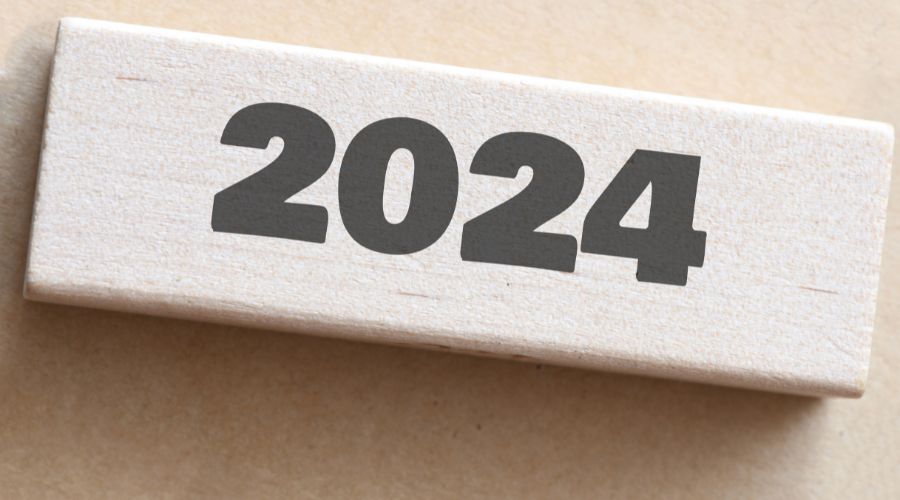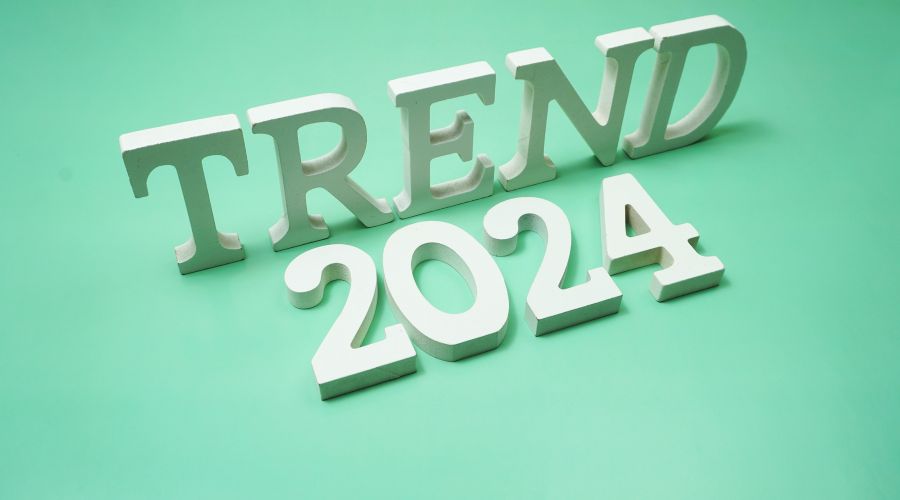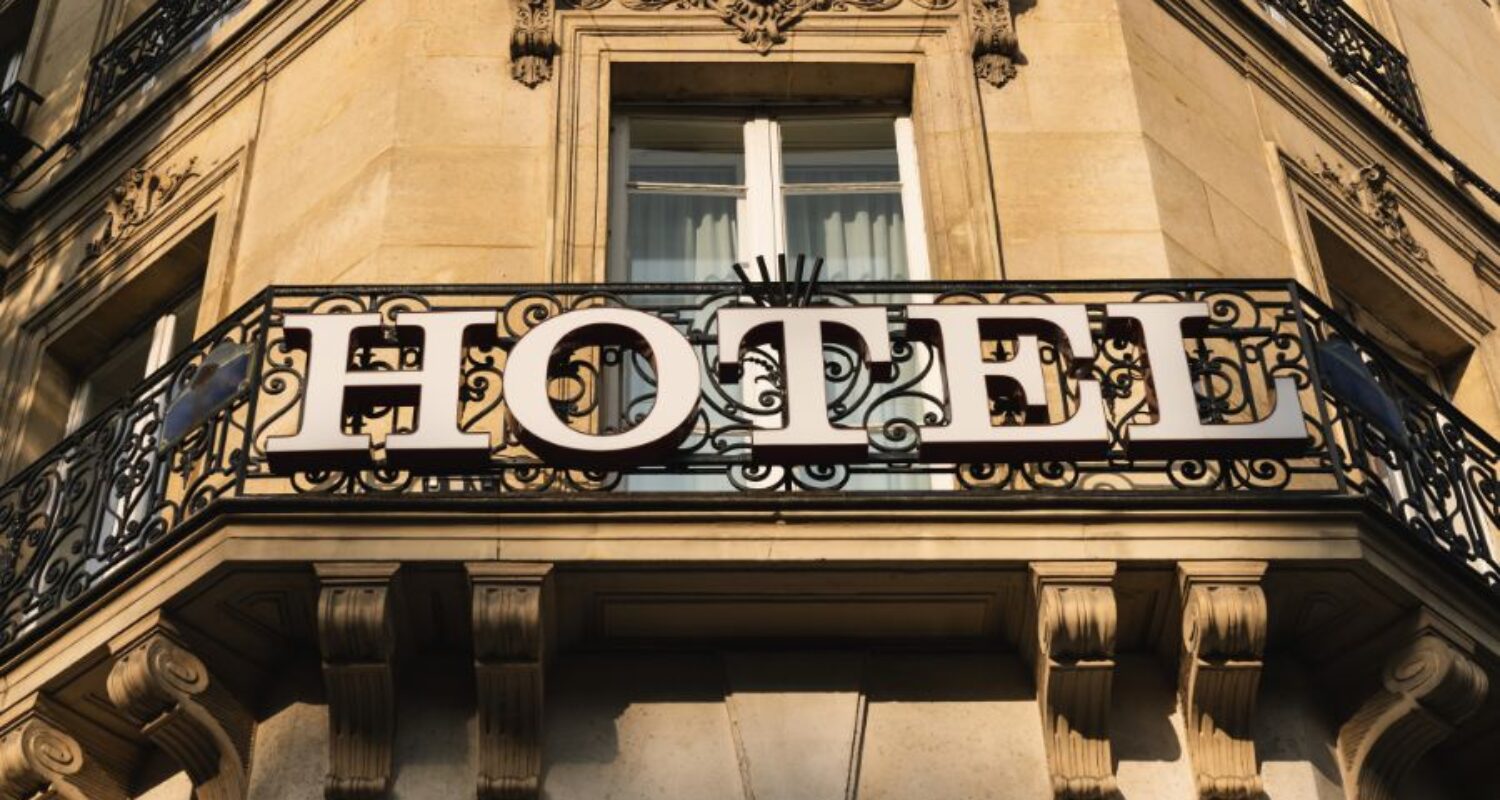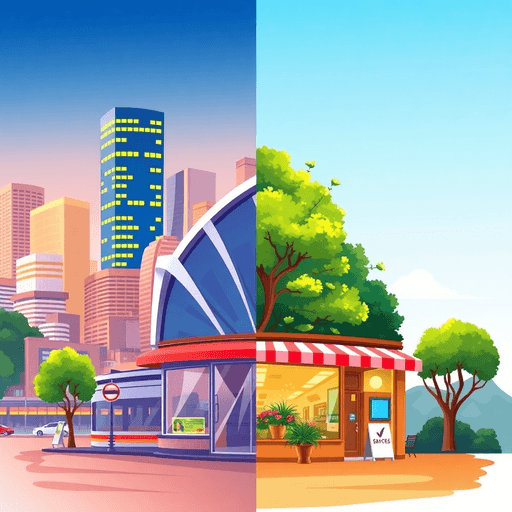As the hospitality industry navigates the ever-evolving digital landscape, hoteliers must stay vigilant and embrace the emerging trends that will shape hotel marketing in 2024. In this comprehensive guide, we’ll explore the innovative strategies and cutting-edge technologies that are poised to redefine the way hotels engage with their guests and drive success in the years to come.
From the impact of post-pandemic travel behaviors to the rise of AI-powered personalization, sustainable marketing initiatives, and the integration of virtual reality, this article will equip you with the insights and tools necessary to stay ahead of the curve and position your hotel for long-term growth in the dynamic hotel marketing landscape.
Key Takeaways on hotel marketing trends 2024
- Understand the evolving trends shaping hotel marketing in 2024
- Discover how to leverage AI-powered personalization to enhance guest experiences
- Explore sustainable marketing strategies to align with eco-conscious consumer demands
- Uncover the potential of social media, metaverse, and virtual reality in hotel marketing
- Harness data-driven decision-making and voice search optimization for better results
- Optimize your hotel’s marketing approach for the mobile-first era
- Leverage influencer partnerships and user-generated content to amplify your brand

Understanding the Evolution of Hotel Marketing Trends 2024
In the rapidly evolving landscape of the hotel industry, the marketing landscape is undergoing a transformative shift. As the world emerges from the impact of the pandemic, hotel marketers must navigate a new era of travel behaviors, consumer expectations, and technological advancements. This section delves into the key factors shaping the future of hotel marketing trends in 2024 and beyond.
Hotel Marketing Trends 2024: Impact of Post-Pandemic Travel Behaviors
The COVID-19 pandemic has fundamentally altered the way people approach travel. Heightened concerns over health and safety have led to a surge in demand for contactless experiences, flexible booking policies, and enhanced cleanliness protocols. Hotel marketers must adapt their strategies to cater to these evolving consumer preferences, emphasizing the measures they have implemented to ensure a safe and comfortable stay.
Shift in Consumer Expectations
Alongside the changes in travel behaviors, hotel guests have also developed new expectations. Travelers now seek more personalized experiences, seamless digital interactions, and a stronger connection with the hotel’s brand and values. Effective hotel marketing must address these evolving consumer demands, leveraging data-driven insights to deliver tailored experiences and foster lasting brand loyalty. Hotel email marketing campaignsThe landscape of consumer expectations is rapidly changing, particularly in the hospitality industry. Guests now seek more than just a room to stay in; they desire immersive experiences that cater to their individual preferences. This shift has been accentuated by the rise of technology and the digital transformation of services, leading to the emergence of hotel metaverse experiences. As consumers become increasingly comfortable navigating virtual environments, hotels must adapt their marketing strategies to include these innovative offerings. By integrating elements of the metaverse into their services, hotels can provide unique opportunities for engagement and interaction, setting themselves apart in a competitive marketplace.
To meet these evolving demands, hotel marketing must focus on cultivating personalized experiences grounded in data-driven insights. Understanding customer preferences through analytics allows hotels to tailor their offerings and enhance the overall guest experience. For instance, leveraging information gathered from past stays can inform targeted hotel email marketing campaigns that speak directly to the unique desires of individual guests. In doing so, hotels can create not just a transaction but a relationship, encouraging repeat visits and generating word-of-mouth referrals.
Additionally, the shift in consumer expectations has led to a re-evaluation of hotel loyalty programs. Today’s travelers are less motivated by traditional perks and more drawn to experiences and personalization. Hotels need to innovate their loyalty offerings, introducing rewards that not only provide tangible benefits but also foster emotional connections with the brand. By aligning loyalty programs with the desire for unique and memorable experiences, hotels can encourage guests to choose their services repeatedly, thereby enhancing brand loyalty in an increasingly crowded market.
Ultimately, as consumer expectations continue to evolve, the hospitality industry must be proactive in responding to these changes. By embracing innovative experiences like hotel metaverse initiatives and refining loyalty programs to meet the unique desires of today’s travelers, hotels can build lasting relationships that drive customer loyalty and distinguish their brands in a competitive environment. The future of hotel marketing lies in its ability to thoughtfully integrate technology with personalized service, ensuring that guests feel valued and understood at every touchpoint.
Technology Integration in Marketing
The hotel industry has witnessed a rapid acceleration in the adoption of technology, transforming the way hotels interact with their guests. From contactless check-in and digital concierge services to AI-powered chatbots and virtual reality tours, hotel marketers must embrace these technological advancements to enhance the customer experience and remain competitive in the hotel marketing trends of 2024.
| Key Trend | Impact | Recommended Strategies |
|---|---|---|
| Post-Pandemic Travel Behaviors | Increased demand for contactless experiences, flexible booking policies, and enhanced cleanliness protocols |
|
| Shift in Consumer Expectations | Desire for personalized experiences, seamless digital interactions, and stronger brand connection |
|
| Technology Integration in Marketing | Adoption of contactless services, AI-powered chatbots, and virtual reality experiences |
|
As the hotel industry navigates the evolving digital marketing for hotels, understanding and adapting to these key trends will be crucial for hoteliers to stay ahead of the curve and deliver exceptional experiences to their guests.
AI-Powered Personalization: Transforming Guest Experiences
In the rapidly evolving world of hotel marketing, artificial intelligence (AI) is emerging as a game-changer, enabling hotels to deliver exceptional, personalized experiences to their guests. By leveraging the power of AI, hotels can now tailor their digital marketing for hotel efforts to cater to the unique preferences and needs of each traveler, enhancing overall customer satisfaction and loyalty.
One of the key hotel personalization tactics empowered by AI is predictive analytics. AI-driven tools can analyze vast troves of guest data, including browsing history, booking patterns, and even social media activity, to anticipate a guest’s preferences and make personalized recommendations. From suggesting the perfect room type to curating a customized itinerary, this level of personalization can elevate the guest experience and foster a deeper connection between the hotel and its customers.
| AI-Powered Personalization Strategies | Benefits |
|---|---|
| Predictive Analytics | Tailored recommendations and experiences |
| Chatbots and Virtual Assistants | Responsive, 24/7 guest support |
| Personalized Email and SMS Campaigns | Targeted, relevant communications |
| Dynamic Pricing and Packages | Optimized upselling and cross-selling |
Beyond predictive analytics, AI-powered hotel personalization tactics also include the use of chatbots and virtual assistants to provide responsive, 24/7 guest support. These AI-powered tools can answer questions, address concerns, and even assist with booking and service requests, ensuring a seamless and personalized experience for every guest.
As the hospitality industry continues to evolve, hotels that embrace the transformative power of AI-driven digital marketing for hotels will be well-positioned to captivate and retain their most valuable guests, setting the stage for long-term success in a highly competitive landscape.
Sustainable Marketing Strategies for Modern Hotels
As the hotel industry embraces the growing focus on environmental sustainability, the need for effective sustainable marketing strategies has become paramount. Modern hotels are exploring innovative ways to showcase their eco-friendly initiatives and communicate their commitment to environmental values to discerning travelers.
Eco-Friendly Initiatives in Marketing
Hotels are increasingly incorporating sustainability into their marketing efforts, highlighting their energy-efficient practices, waste reduction programs, and use of eco-friendly materials. From featuring renewable energy sources to promoting paperless operations, these hotel sustainability initiatives are being prominently showcased to attract environmentally conscious guests.
Green Certification Programs
Many hotels have sought third-party green certification to validate their environmental credentials. Programs like LEED, Green Seal, and EarthCheck provide hotels with the opportunity to showcase their sustainability efforts and earn the trust of eco-savvy travelers. These certifications are often prominently featured in hotel marketing materials, reinforcing the property’s commitment to sustainable practices.
Communicating Environmental Values
Effective communication of a hotel’s environmental values is crucial in the age of hotel marketing trends in 2024. Hotels are leveraging various channels, from their website and social media to in-room collateral, to educate guests about their sustainability initiatives and the positive impact they are making on the local environment. By weaving these messages seamlessly into their marketing approach, hotels can build a strong brand reputation as eco-conscious industry leaders.
| Eco-Friendly Hotel Initiatives | Percentage of Hotels Implementing |
|---|---|
| Energy-Efficient Lighting | 92% |
| Waste Reduction and Recycling Programs | 87% |
| Water Conservation Measures | 81% |
| Renewable Energy Sources | 68% |
| Eco-Friendly Purchasing Policies | 72% |
Social Media Marketing Revolution in Hospitality
The hospitality industry has witnessed a profound transformation in its marketing strategies, with social media emerging as a powerful platform for hotels to connect with their target audience. As the digital landscape continues to evolve, savvy hotel marketers are leveraging innovative hotel social media strategies and hotel content marketing techniques to stay ahead of the curve.
One of the key trends in social media marketing for hotels is the emphasis on visual storytelling. Platforms like Instagram and TikTok have become essential channels for hotels to showcase the unique experiences they offer, from breathtaking architecture to mouthwatering culinary delights. By curating visually appealing content, hotels can captivate potential guests and inspire them to book their stay.
Influencer partnerships have also become a cornerstone of hotel social media strategies. Hotels are collaborating with social media influencers who align with their brand’s values and target audience, leveraging the influencer’s engaged following to reach new potential guests. These partnerships often involve co-created content, product placement, and authentic endorsements that resonate with the influencer’s followers.
| Social Media Platform | Effective Content Strategies |
|---|---|
| – Visually stunning imagery
– Behind-the-scenes hotel experiences – Influencer collaborations – User-generated content |
|
| TikTok | – Short-form, engaging video content
– Hotel-specific challenges and trends – Collaborations with local creators – Interactive, entertaining content |
| – Informative hotel updates
– Targeted paid advertising – Customer engagement and reviews – Exclusive offers and promotions |
As the social media landscape continues to evolve, hotels must adapt their hotel content marketing strategies to keep pace with changing consumer preferences and emerging platforms. By embracing the power of visual storytelling, influencer partnerships, and platform-specific content strategies, hotels can effectively attract and engage their target audience, ultimately driving increased bookings and loyalty.

Metaverse and Virtual Reality in Hotel Marketing
In the rapidly evolving world of hotel marketing, the rise of the metaverse and virtual reality (VR) technologies are poised to redefine the guest experience. As hotels strive to stay ahead of the curve, these innovative tools are enabling them to create immersive and personalized experiences that captivate potential guests.
Virtual Hotel Tours and Experiences
One of the most exciting developments in this space is the introduction of virtual hotel tours. By leveraging VR technology, hotels can now offer prospective guests the opportunity to explore their facilities and amenities in a fully immersive digital environment. This not only enhances the pre-booking experience but also allows guests to visualize themselves enjoying the hotel’s offerings before even stepping foot on the premises.
Digital Twin Technology
Complementing virtual tours, digital twin technology is revolutionizing hotel marketing. By creating detailed digital replicas of their physical properties, hotels can provide guests with a seamless, interactive experience that blends the digital and physical worlds. This innovative approach enables guests to customize their stays, experiment with room layouts, and even plan events or special occasions in a virtual setting before booking.
AR-Enhanced Marketing Materials
Augmented reality (AR) is also making its mark on hotel marketing, with hotels leveraging this technology to create visually stunning and engaging marketing materials. From interactive brochures to virtual room tours, AR-enhanced content allows potential guests to interact with the hotel’s offerings more dynamically and compellingly, ultimately driving increased conversions and brand loyalty.
As the hotel industry continues to evolve, the integration of metaverse and virtual reality technologies is poised to become a key differentiator in the highly competitive world of hotel marketing and digital marketing for hotels. By embracing these innovative solutions, hotels can offer unparalleled experiences that captivate and delight their guests, solidifying their position as industry leaders.
Data-Driven Marketing Decisions and Analytics
In the ever-evolving landscape of hotel marketing, data has emerged as a powerful catalyst for driving informed decisions and maximizing campaign effectiveness. As the hotel marketing trends of 2024 continue to unfold, hotels that embrace data-driven strategies will undoubtedly gain a competitive edge.
The rise of sophisticated analytics tools has empowered hoteliers to delve deeper into their guest data, uncovering valuable insights that can shape personalized hotel personalization tactics. By leveraging big data, hotels can better understand their target audience, predict consumer behavior, and optimize their marketing efforts for maximum impact.
- Personalized Campaigns: Data analytics enable hotels to craft highly targeted marketing campaigns that cater to the unique preferences and behaviors of individual guests.
- Improved Customer Experience: By analyzing guest data, hotels can enhance the overall customer experience, addressing pain points and delivering tailored solutions.
- Optimized Channel Allocation: Data-driven insights help hotels allocate marketing resources more effectively, directing their efforts toward the most promising channels and platforms.
- Predictive Analytics: Advanced analytics tools can help hotels anticipate future trends, allowing them to proactively adapt their marketing strategies and stay ahead of the curve.
| Metric | 2022 | 2023 | 2024 (Projected) |
|---|---|---|---|
| Website Conversion Rate | 3.2% | 4.1% | 5.3% |
| Email Open Rate | 21.5% | 24.2% | 27.8% |
| Social Media Engagement | 12.8% | 15.4% | 18.2% |
As the hotel industry continues to evolve, data-driven marketing decisions and analytics will play an increasingly crucial role in shaping hotel marketing trends in 2024 and beyond. By embracing this data-driven approach, hotels can unlock new growth opportunities, enhance guest experiences, and stay ahead of the competition.
Voice Search Optimization for Hotel Marketing
In the rapidly evolving digital landscape, the rise of voice search has significantly transformed the way travelers interact with hotel marketing. As the popularity of smart speakers and voice-activated devices continues to soar, hotel marketers must adapt their strategies to capitalize on this trend and ensure their properties remain visible in the voice search ecosystem.
Smart Speaker Integration
Integrating hotel information and booking capabilities with smart speakers, such as Amazon Alexa and Google Assistant, is a crucial step in optimizing for voice search. By ensuring that hotel details, amenities, and reservation options are accessible through voice commands, hoteliers can provide a seamless and convenient experience for their guests, ultimately driving more direct bookings and enhancing customer loyalty.
Voice-First Content Strategy
Developing a comprehensive voice-first content strategy is essential for hotels seeking to excel in digital marketing for the hotel landscape. This involves creating content that is optimized for natural language queries, focusing on long-tail keywords and conversational phrasing that mirrors how travelers are likely to search for hotel information using voice commands. By anticipating and addressing these voice-based queries, hotels can position themselves as valuable resources and increase their visibility in voice search results.
As hotel marketing trends in 2024 continue to evolve, the integration of voice search optimization will be a critical component of a hotel’s digital marketing arsenal. By embracing this emerging technology and crafting a strategic, voice-centric approach, hoteliers can enhance the guest experience, drive more direct bookings, and stay ahead of the competition in the rapidly transforming hospitality industry.
Influencer Partnerships and User-Generated Content
In the dynamic world of hotel marketing, savvy hoteliers are increasingly harnessing the power of hotel influencer collaborations and user-generated content to captivate their audience. This strategic approach taps into the trust and authenticity that influencers command while leveraging the genuine experiences shared by satisfied guests.
Forging successful hotel social media strategies often begins with identifying the right influencers to partner with. These digital tastemakers possess the ability to reach and engage a targeted audience, seamlessly weaving a hotel’s unique offerings into their content. By collaborating with influencers, hotels can amplify their brand message, showcase their facilities, and inspire potential guests to book their stay.
Concurrently, hotels are recognizing the value of user-generated content (UGC) as a powerful marketing tool. Encouraging guests to share their experiences, photographs, and reviews on social media platforms can foster a sense of community and authenticity that traditional advertising often struggles to achieve. This organic content, shared by real-life visitors, can serve as social proof and influence the decision-making process of future travelers.
| Benefits of Influencer Partnerships | Advantages of User-Generated Content |
|---|---|
|
|
By strategically integrating hotel influencer collaborations and harnessing the power of hotel social media strategies through user-generated content, hotels can elevate their marketing efforts and captivate their target audience in the ever-evolving hospitality landscape.
Mobile-First Marketing Approaches
In the digital age, where travelers rely heavily on their smartphones, hotels must embrace a mobile-first marketing strategy to effectively reach and engage their target audience. This shift in consumer behavior has paved the way for innovative approaches, such as app-based loyalty programs and optimized mobile booking experiences, which are reshaping the hospitality industry’s marketing landscape.
App-Based Loyalty Programs
Savvy hotels are leveraging dedicated mobile applications to create seamless and personalized loyalty programs. By integrating these programs into their guests’ digital journey, hotels can foster deeper engagement, streamline the booking process, and offer exclusive rewards and experiences tailored to individual preferences. This mobile-centric approach not only enhances customer loyalty but also provides invaluable data insights to refine marketing strategies and improve overall guest satisfaction.
Mobile Booking Optimization
With the majority of travel-related searches and bookings now happening on mobile devices, hotels must prioritize the optimization of their mobile booking experience. This includes designing user-friendly interfaces, implementing intuitive navigation, and ensuring a frictionless checkout process. By prioritizing mobile-first design and functionality, hotels can capitalize on the growing trend of on-the-go bookings, ultimately driving increased conversions and revenue.
FAQ
What are the key hotel marketing trends to watch for in 2024?
The top hotel marketing trends for 2024 include AI-powered personalization, sustainable marketing strategies, social media marketing revolution, metaverse and virtual reality integration, data-driven marketing decisions, voice search optimization, influencer partnerships, and mobile-first marketing approaches.
How are post-pandemic travel behaviors impacting hotel marketing strategies?
The shift in consumer preferences and expectations after the pandemic has forced hotels to adapt their marketing strategies. Factors like increased demand for contactless experiences, focus on health and safety, and the rise of remote/hybrid work have significantly influenced hotel marketing trends.
What role does AI play in enhancing guest experiences through personalization?
AI-powered personalization is transforming the hotel guest experience. Hotels can leverage AI tools to analyze guest data, anticipate preferences, and deliver tailored offers, content, and experiences that resonate with individual travelers.
How can hotels incorporate sustainability into their marketing efforts?
Sustainable marketing strategies for hotels include promoting eco-friendly initiatives, obtaining green certifications, and effectively communicating the brand’s environmental values to attract eco-conscious travelers. This helps hotels differentiate themselves and appeal to the growing segment of sustainable-minded consumers.
What are the latest social media marketing trends for the hospitality industry?
The social media marketing revolution in hospitality involves platform-specific strategies, engaging content creation, influencer collaborations, and leveraging user-generated content to build a strong online presence and foster deeper connections with guests.
How can hotels leverage metaverse and virtual reality technologies for marketing?
Hotels are exploring the metaverse and virtual reality to offer immersive experiences, such as virtual hotel tours, digital twin technology, and AR-enhanced marketing materials. These emerging technologies can help potential guests explore and experience hotel offerings before booking.
What are the benefits of data-driven marketing decisions for hotels?
By leveraging data analytics, hotels can make informed marketing decisions, optimize campaigns, and improve overall marketing performance. Data-driven insights help hotels better understand guest preferences, tailor their offerings, and deliver personalized experiences.
Why is voice search optimization crucial for hotel marketing?
With the growing popularity of voice-based searches, hotels must optimize their content and integrate with smart speakers to capture voice-based travel queries. This allows hotels to reach potential guests through voice-first content strategies and smart speaker integrations.
How can hotels effectively leverage influencer partnerships and user-generated content?
Influencer collaborations and user-generated content can build trust, authenticity, and engagement with hotel guests. Hotels can partner with relevant influencers and encourage guests to create and share content, which can then be incorporated into the hotel’s marketing campaigns.
What are the key mobile-first marketing approaches for hotels?
Mobile-first marketing strategies for hotels include developing app-based loyalty programs, optimizing the mobile booking experience, and implementing other mobile-centric approaches to reach and engage travelers on their preferred devices.


